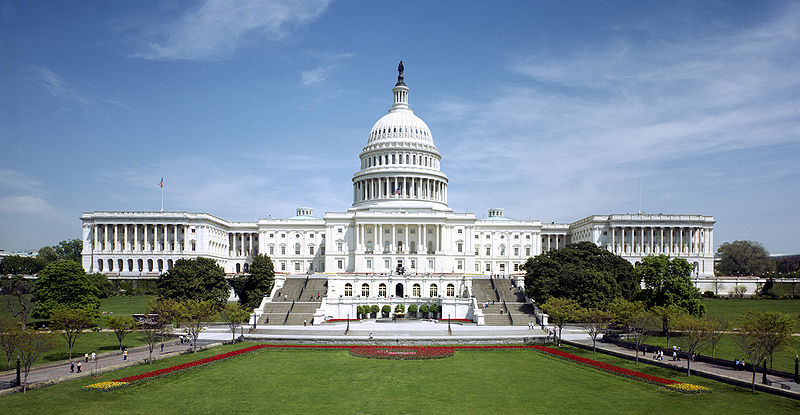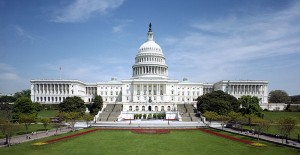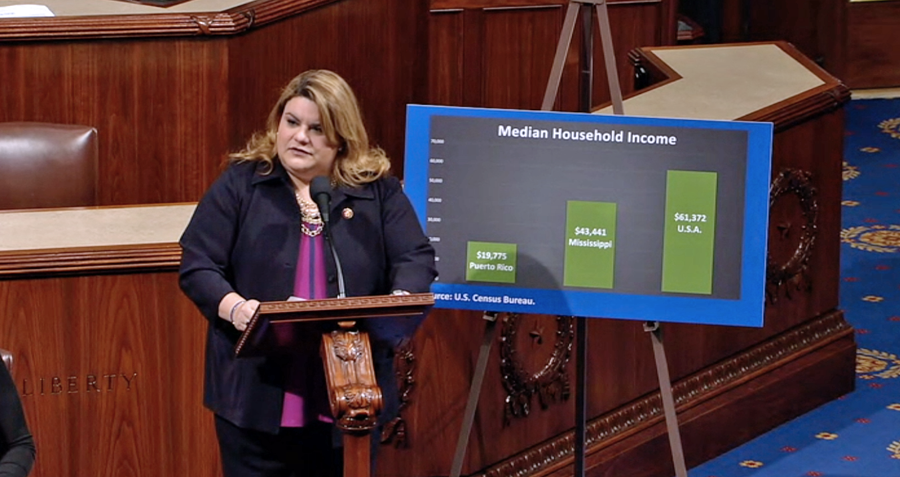U.S. Republican lawmakers release oversight board bill


A bill defining the mechanism to help Puerto Rico restructure and the duties of an oversight board was released Tuesday.
The House Committee on Natural Resources released H.R. 4900, the “Puerto Rico Oversight, Management, and Economic Stability Act” (known as PROMESA), co-sponsored by Committee Chairman Rob Bishop (R-UT) and Rep. Sean Duffy (R-WI).
The 121-page document represents the near “conclusion of collaborative and open drafting process that has involved all stakeholders to reach a responsible consensus,” Bishop said in a statement released shortly after the bill was made public.
The lawmaker said the package of reforms “will restore the guardrails of freedom and self-governance in Puerto Rico.”
“It will hold Puerto Rico accountable to its debt, uncover audited financial statements, enforce fiscal responsibility and cut red tape holding down the Island’s economy. It provides tools to redirect Puerto Rico from a path of destitution towards a path of prosperity, preserving freedom and opportunity for the next generation,” he said.
The bill was described as the “constitutionally-sound solution that will provide real, long-lasting reform to the Commonwealth while respecting the rights of all parties and creditors.”
The PROMESA Act will “ensure that the island meets its debt obligations in a controlled, responsible manner, without saddling the U.S. taxpayers with the bill. If we get this right, we have an opportunity to put the people of Puerto Rico on a path to economic opportunity. However, if we do nothing, the American people will be on the hook,” Duffy said.
The bill drew immediate responses from island representatives, both on- and off- Puerto Rico, who generally agreed that the new version was an improvement from the draft released Mar. 29.
“The draft released this afternoon contains a number of arguments stated regarding a fairer approach to the powers of the [Oversight] Board and is an important step in the right direction,” Puerto Rico Gov. Alejandro García-Padilla said. “We will continue studying the bill and lobbying so the final bill contains a Board in line with the island’s democratic institutions, provides an effective restructuring scheme to stabilize public finances and routes Puerto Rico’s economic development.”
Meanwhile, Pedro Pierluisi, Puerto Rico’s resident commissioner in Washington, outlined the main features of the oversight board, and highlighted some of the key changes that were made to the board following negotiations.
“As a result of this dialogue, the oversight board section of the bill has been dramatically improved in terms of substance and clarity,” he said. “Needless to say, the debt restructuring section must be crafted in a way that is fair to creditors, but that does not create unreasonable impediments to actual debt relief.”
In his assessment, Pierluisi underscored the removal of the provisions empowering the board to impose recommendations over the objection of the Puerto Rico government and to issue binding regulations, both of which were clearly inappropriate and anti-democratic — which were part of the original draft.
He also noted the clear-cut language establishing when the duties of the board would terminate, which depend on conditions being met, including having a balanced budget for four consecutive years. The new bill also eliminates penalties on Puerto Rico government officials who violated board orders, instead vesting decisions about administrative discipline to the island’s governor.
Board will run with 7 members, serving 3-year terms
The proposed board will have seven members who will serve three-year terms, all of which will be appointed by the president — two from a list provided by the House Speaker (including at least one member from Puerto Rico); two from a list provided by the Senate Majority Leader; one from a list provided by the House Minority Leader; one from a list provided by the Senate Minority Leader; and one that requires that the president selects on their own.
Representatives Nydia M. Velázquez (D-NY-7) expressed concern over the minimum wage provisions contained in the bill, which she said could spur further migration off the island by exempting the labor force from federal protections. She also balked at the provision to transfer 3,100 acres of federal land to Puerto Rico.
“I believe that we need to incorporate protections to ensure that this land is not sold and used to make a ‘quick buck’ by private developers,” she said.
She also expressed disappointment over the inclusion of what she called “roadblocks to restructuring.”
“Section 206(b) requires that five Board members vote for restructuring. Given that four Board members will be appointed by Republicans, there is significant reason to believe that restructuring authority will never be granted,” she said
“This concern is compounded by section 601, a new provision, which adds a collective action clause to the bill. This clause requires two-thirds of creditors to voluntarily agree to restructure their debt, a hurdle that is not realistically achievable,” Velázquez said.
Without enough votes from the Democratic delegation in Congress, the bill presented Tuesday is at risk of not passing.
““For this bill to be effective and garner my support, the restructuring tools must be accessible to the island. In the bill’s current form, restructuring remains outside of Puerto Rico’s reach. I will continue working with my colleagues to improve the bill with the hope of reaching an agreement that benefits Puerto Rico,” she said.
A hearing on the bill is slated to take place this morning, with a subsequent mark-up session scheduled for Thurday.













